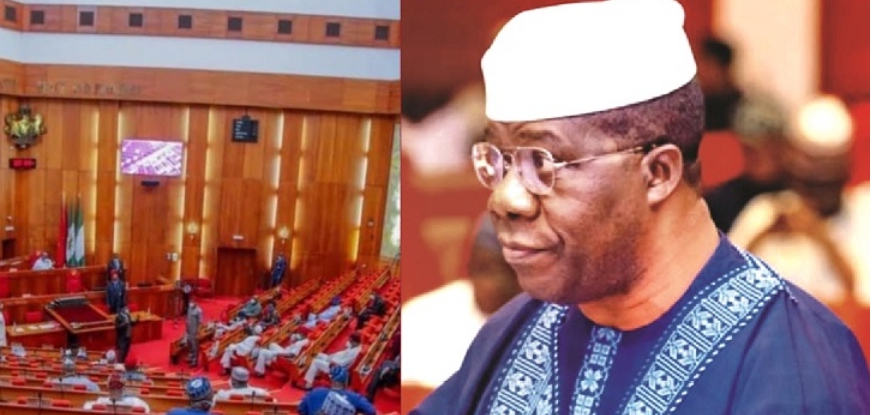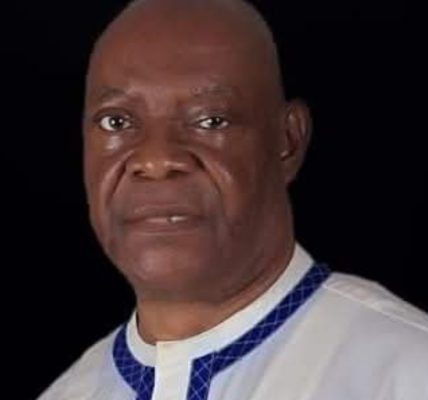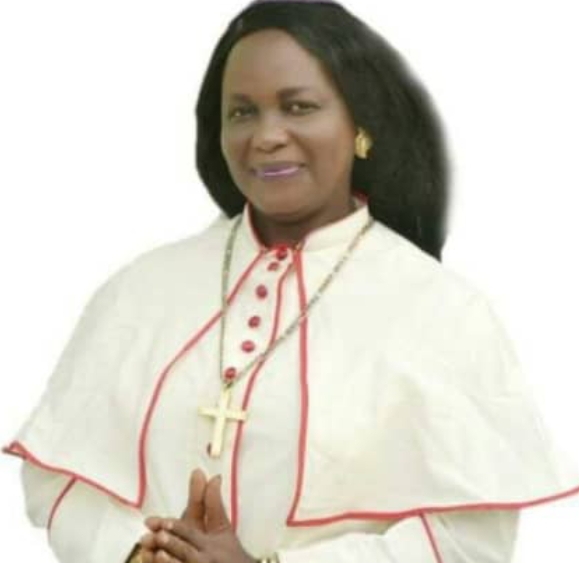More insights into the Tax Reform Bills under consideration by the National Assembly were given yesterday during a debate at the Senate.
Should the Bills be passed as proposed and signed by the President, states will get 55 per cent of the Value Added Tax (VAT).
Senate Leader Opeyemi Bamidele made this know during the debate, which proceeded the passage of the Bills through first and second reading.
In the House of Representatives, lawmakers chose to continue consultations on the Bill until the next legislative day (Tuesday).
The four Tax Reform Bills sent by the Executive are:
•A Bill for an Act to Establish the Joint Revenue Board, the Tax Appeal Tribunal and the Office of the Tax Ombudsman for the harmonisation, coordination and settlement of disputes arising from revenue administration in Nigeria and for related matters, 2024.
•A Bill for an Act to Repeal the Federal Inland Revenue Service (Establishment) Act, No.13, 2007 and enact the Nigeria Revenue Service (Establishment) Act to Establish the Nigeria Revenue Service, charged with powers of assessment, collection of, and accounting for revenue accruable to the Government of the Federation, and for related matters, 2024.
•A Bill for an Act to Provide for the assessment, collection of, and accounting for revenue accruing to the Federation, Federal, States and Local Governments; prescribe the powers and functions of tax authorities, and for related matters, 2024.
•A Bill for an Act to Repeal certain Acts on taxation and consolidate the legal frameworks relating to taxation and enact the Nigeria Tax Act to provide for taxation of income, transactions and instruments, and for related matters, 2024.”
Bamidele, who sponsored the bills, shed light on the sharing formula, saying: “Unlike what is obtainable under the existing tax regime whereby the Federal Government takes a lion share of VAT revenues, it is proposed that the sharing formula should allow State Governments share 55% of VAT revenue from the current 15% to 10% sharing formula.”
But former Senate Chief Whip Ali Ndume, who opposed the bills, called for their withdrawal to allow for more consultations with stakeholders.
On Wednesday, when Presidential Economic Team members appeared before the Senate to explain the content of the bills, Ndume and Senator Abdul Ningi tried to stop them but the attempt was futile.
The Senate held a one-hour closed door session, where the senators agreed to debate the general principles of the bills.
Leading the debate, Bamidele said the proposals should be seen as part of the required legislative intervention to support ongoing fiscal and tax reforms needed to reposition the economy for growth and productivity.
Bamidele said: “These bills should be considered with great sense of patriotism and exercise of the powers of the National Assembly under Section 59 of the Constitution regarding imposition of taxes. I therefore, urge my colleagues to support these bills for second reading.”
Explaining the elements of the bills, the Senate Leader said they would overhaul the country’s tax system, simplify the tax landscape, reduce the burden on small business and streamline how taxes are collected.
He stressed: “In broad terms, the four bills seek to ensure uniformity in tax revenue administration in Nigeria in accordance with the provisions of the Constitution, eliminate the incidents of double taxation across the country, deploy taxation as a tool to encourage private sector investments in critical industries and boost individual disposal incomes through targeted tax exemptions as captured in the various bills.
“In the area of tax exemptions, there is a proposal to exempt those whose salaries are not more than the minimum wage from P.A.Y.E deductions while small businesses with annual turnover of N50, 000,000 or less are equally exempted from payment of taxes.
Similarly, there is a proposed huge reduction in company income tax from the current 30% to 25% by 2026.
As part of deliberate attempt to curtail double taxation and multiplicity of taxes and levies, multiple taxes hitherto paid by companies under various tax heads, namely 2.5% education tax and 0.25% NASENI tax have been harmonised into a development level of 2% which by 2030, will be applied to fund the newly established student loan scheme, which will benefit many Nigerian youths.
However, local governments’ share of VAT revenue remains unaffected. Relatedly, basic items consumed by Nigerian households such as food items, medical services and pharmaceuticals, educational fees, electricity, e.t.c., are exempted from VAT.
Again, as part of efforts to ease the administration of income taxes and levies across the Federation, there is a reasonable effort made to consolidate core tax statutes and related tax legislations.
Contrary to misrepresentations in the public domain regarding the intendment of the Bills under consideration, I wish to state that these Bills contains innovative people-oriented proposals as part of government’s deliberate fiscal and tax reform measures to cushion the effect of ongoing broader economic policies such as the removal of subsidy on petroleum products, renewed efforts to implement cost-reflective electricity tariffs in the power sector etc, on Nigerian citizens.”
The Chairman of Senate Committee on Finance, Sani Musa (APC – Niger East) supported the bills.
The senator representing Bayelsa West, Seriake Dickson, commended the Executive for coming up with the landmark tax reform bills.
He said the fiscal legislation would entrench fiscal federalism in Nigeria, if passed into law.
Dickson noted that Nigerians were paying taxes and the government at various levels has been using it to carry out developmental projects since the colonial era.
He said the situation changed when oil was discovered and the sub-national governments started relying on the Federation Accounts monthly allocations.
He pointed out that some stakeholders objected to the bills because there had not been proper consultation.
Dickson said: “The position of the Nigerian Governors Forum is legitimate. The Executive should carry out more enlightenment on the bills.
The derivation is meant to encourage governors to be more productive. The proposed bills would enable states to boost revenue by creating enabling environment that could encourage investment.
“When companies are established in their states, the Pay As You Earn taxes that would be collected from workers of those companies will be paid to the state governments.
I use this opportunity to call on all my colleagues to agree that these bills, all four of them, should be passed for second reading to enable our committee, the experts and the general public participate in accordance with our rules.
Ndume, who opposed the bills, said he is against the timing of the bills, the provision for sharing tax revenue based on derivation and lack of broad-based consultation before they were presented.
Ndume’s position was countered by Senator Mohammed Tahir Monguno (APC Borno North), who said the views of stakeholders who oppose the bills should be collated at the public hearing.
He said the governors and traditional rulers are free to ventilate their opinions at the public hearing.
Monguno said Ndume’s position was not only strange to legislative process, but also a mere academic exercise’.
He said it was curious that Ndume, who was a Minority Leader in the House of Representatives, a Senate Leader, and immediate past Chief Whip of the Senate, could in spite of the cognate experience about lawmaking, come up with such arguments.
Monguno said: “I get to disagree with you that this bills should be withdrawn first and consultation should be held with the Nigerian Governors Forum and traditional rulers.
“We have a procedure, which is clearly and unambiguously stated in our rulebook for the process of lawmaking, and the Constitution, in a very clear and unambiguous manner, gave us the power to regulate our proceedings.
“Pursuant to Section 60 of the 1999 Constitution, as amended, we gave these rules to ourselves in order to guide our proceedings.
“The process of lawmaking is very clear and unambiguous as per this rule book. That after second reading, it will now be transmitted to the Committee for Public Hearing.
“In the course of the public hearing, Nigerians of all walks of life, will come, including the governors and traditional rulers. They are free to come and ventilate their opinion.”
“With due respect, what Senator Ndume has suggested is foreign to the process of legislation and therefore, is fairly academic and should not be considered.
My contribution is that these bills, as being proposed, particularly removing VAT on pharmaceuticals and education, is pro-people, will go a long way in removing tax burdens on Nigerians. I support that these bills should go for second reading.”
Senators overwhelmingly approved that the Bills be read for a second time when they were put to voice vote by Senate President Godswill Akpabio, who presided over the plenary.
Akpabio thereafter, referred the bills to the Senate Committee on Finance for further legislative work and directed it to report back to plenary in six weeks.
He mandated the committee to organise public hearing on the bills for inputs from those against the bills.
Why I am against tax reform bills, by Ndume
Ndume said the reforms would be more effective if they have the buy-in of stakeholders, adding that swift passage could occur after such consultations.
He said: “Let it be on record that my problem with the bills is the timing. Number two is the issue of derivation. The issue of derivation made the reforms contagious, contaminated, and contradictory in some cases.
“This is because the Constitution has to be amended for some of these proposals to be effective. I’m glad we are doing a constitutional review. So, even if it means reviewing the constitution.
I agree that we should not throw away the baby with the bathwater. I would have preferred we remove the baby and throw away the water first. And that is to go with what the governors and National Economic Council (NEC) proposed.
“The bills should be withdrawn and re-presented to the National Assembly after getting the buy-in of the governors and NEC and even our traditional rulers.
“Let’s be honest with ourselves. If we sit down here, work on these bills, as it is now, there may be a backlash.
This is because the governors have not come out publicly to change their position, the traditional rulers have not sat down publicly to change their position. NEC has not sat down to change their position.
As for me, I looked at the bills. The bills contains so many good things, but these two things, derivation and VAT.
Even though you say it will be addressed at the public session, it is not something that many of us will agree to.
“You started by saying, we are going to negotiate, which is good, and it’s coming from you. Why don’t we negotiate first before we come out to take a position?
“The people, through the governors and the traditional rulers, say that the bills should be withdrawn, make some necessary amendments and then, bring it back and we can pass it in 24 hours. That is my position.”
Consultation continues in House of Reps
After over two hours of closed door meeting, the House of Representatives resolved to continue its consultation on the bills.
Deputy Speaker Benjamin Kalu, who presided over plenary, said: “What we did was to continue our consultation, which we promised the House on the tax bills and the agreement at that session was to continue that conversation.
“This consultation is going to continue from now till Tuesday when we will hold a special session when we will invite these resource persons to be here in the House to engage us.
“Thereafter, we decide which way to go. This is to make sure that it is well documented that we did our consultation in the form of an executive session and we are continuing that consultation till next week Tuesday.”
©CDA News





